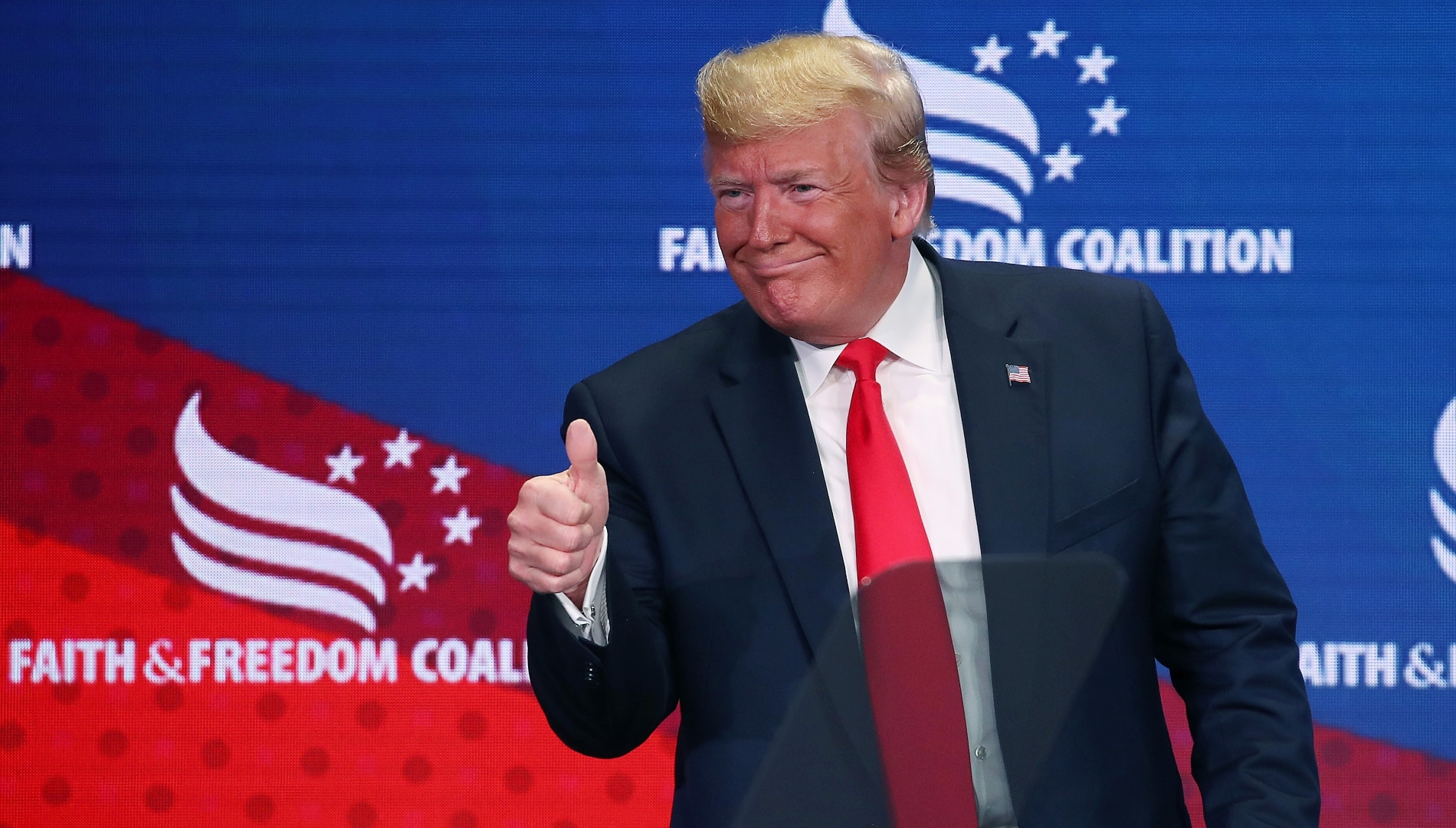OPINION: This article may contain commentary which reflects the author's opinion.
Democrats are hitting the panic button over the potential of a bipartisan third-party presidential ticket after a new report warned that such a circumstance would likely benefit former President Donald Trump.
The report by the moderate political organization Third Way, first shared with Axios and titled, “The Dangerous Illusion of a Presidential Third Party in 2024,” states:
It isn’t the first time and it certainly won’t be the last, but American voters are frustrated with the state of our politics, and approval ratings for both the Democratic and Republican parties are low. Data showing this discontent and interest in alternatives have led some to consider running a third-party candidate for president in 2024.
Their reasons might sound high-minded, ripe for the moment, and a needed shakeup for a stale two-party system, but the reality is that a well-financed third-party candidacy will most likely benefit the presumptive Republican nominee Donald Trump or a Trump acolyte in 2024.
“If a third-party candidate blew past historic precedent and managed to win enough Electoral Votes to keep any candidate from getting to 270, then the outcome would be decided in the House of Representatives, which is controlled by Republicans and where Donald Trump would prevail,” the report goes on to say.
In addition, Third Way claimed that while supporters of the former president are “die-hards,” Democratic voters are not.
“Joe Biden’s victory in the 2020 election was not due to any erosion in support for Donald Trump. Rather, not only did Trump’s raw vote total increase, but in the key states of Pennsylvania, Wisconsin, and Michigan, Trump’s share of the vote actually increased,” the report said.
“The change that made the difference between Hillary Clinton’s loss in 2016 and Biden’s victory in 2020 was the decrease in support for third-party candidates. As a result, Biden’s vote shares were higher in battleground states than Clinton’s, even when Trump’s vote share increased as well,” it continued.
“Given that Trump’s base of support actually expanded after four tumultuous years of his presidency, there is no reason to believe that some portion of his base would abandon him in 2024 for a third-party candidate. Rather, a third-party candidate would be more likely to divide the anti-Trump vote, as it did in 2016,” the report added.
The New York Times noted further that one organization, No Labels, is currently working on building a multimillion-dollar 2024 campaign war chest to run an independent third-party ticket.
Opinion columnist David Brooks noted: “The No Labels operation is a $70 million effort, of which $46 million has already been raised or pledged. It has four main prongs. The first is to gain ballot access for a prospective third candidate in all 50 states and the District of Columbia.”
A second objective is to build a database of Americans who say they support a so-called “unity ticket.” Brooks says that the group has identified 23 states where organizers believe they could win a plurality of the vote, thereby giving the unity ticket the 270 electoral votes to win the presidency.
Number three is devising a policy agenda that unites most Americans, while the fourth peg involves the creation of “an infrastructure to nominate and support a potential candidate.”
No Labels spokesman Ryan Clancy told Axios that the group wouldn’t rule out an alternative to President Joe Biden but also noted that it won’t offer a presidential ticket “if that choice isn’t needed.”
“Our citizen leaders from around the nation have no interest in fueling a spoiler,” Clancy said. “But if the public urgently wants and needs another choice, we’ll make sure they have it.”
Aliza Astrow, the Third Way senior political analyst who authored the report, noted that third-party candidates in the 2016 election, third-party candidates Jill Stein and Gary Johnson wound up garnering some 3 percent of the vote, which was enough to catapult Trump over the Democratic nominee Hillary Clinton.
“Jill Stein and Gary Johnson weren’t that well-financed, so there is a lot of concern this time around that there might be a better financed third-party candidacy that comes on the scene with $50M,” she told Axios.
